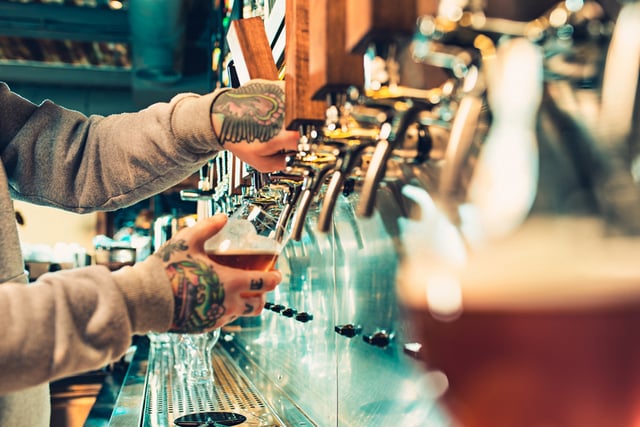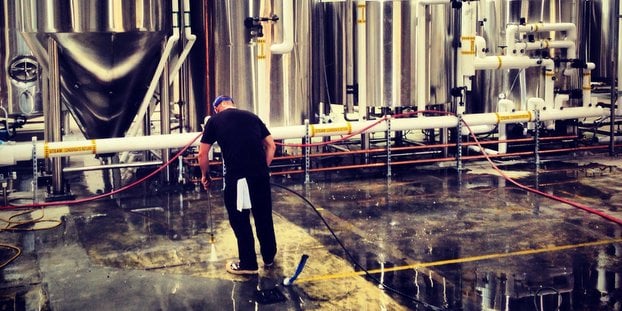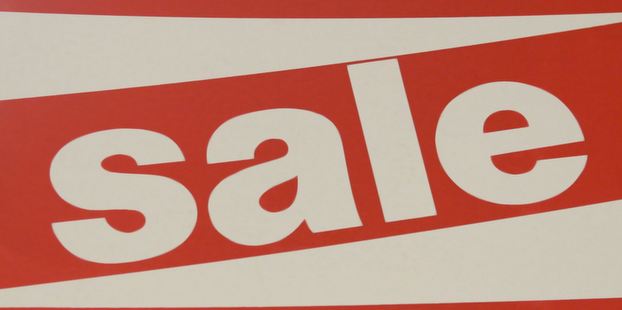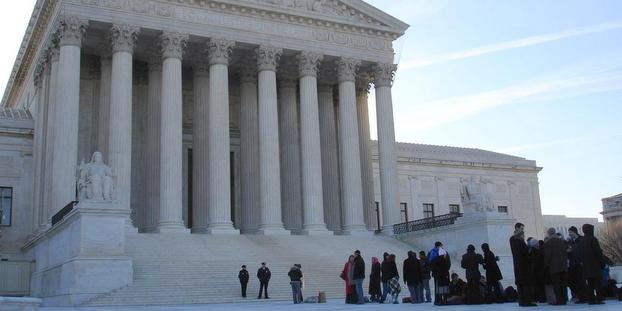
2019 brings new laws, regulations and court decisions that place additional stringent requirements on California breweries. Our goal is to help breweries understand the new requirements and whether changes are needed to get you back focused on making and serving great beer. Here is what you need to know to keep your brewery in compliance in the new year.
Sexual harassment
Conduct of harassment
In addition to employees, investors can now be sued for sexual harassment. This means that sexual harassment is prohibited for any person that holds themself out as being able to establish a business or professional relationship with the alleged victim. As a result, breweries need to be aware of conduct by both their employees and owners. For example, if an investor in the brewery stops by the pub and has inappropriate conversations with customers or employees, then the brewery could be responsible for the harassing conduct.
Likewise, breweries are now liable for unlawful harassment by non-employees where the brewery knew or should have known of the harassment and failed to take appropriate remedial action. This means that if a brewery operates a pub, then it must be alert to customers harassing employees. This new law may apply to unruly customers or vendors harassing brewery employees. Breweries with pubs that employ servers may need to pay particular attention to potentially unruly customers to ensure that they do not harass employees. Employees should also be trained to report instances of customers harassing them so that the brewery can address the situation.
Training
Breweries with five or more employees must provide sexual harassment training. This includes at least two hours of training to supervisory employees and at least one hour of training to non-supervisory employees by Jan. 1, 2020, and once every two years thereafter. The training may be conducted by an in-person trainer or online.
Settlement agreements and releases — New restrictions on confidentiality
From time to time breweries may settle sexual harassment lawsuits, complaints or administrative charges by employees or former employees or otherwise enter into release agreements with them. In these agreements, breweries can no longer prevent an employee from testifying about criminal conduct or sexual harassment in an administrative, legislative or judicial proceeding or where such testimony is required or requested by subpoena, court order or request of an agency or legislature.
Additionally, a settlement agreement cannot be drafted to prevent an employee from releasing factual information pertaining to claims of sexual assault, sexual harassment, gender discrimination or related retaliation that have been filed in court or before an administrative agency. Settlement agreements may still prevent disclosure of the amount of the settlement.
Along the same lines, breweries may enter into severance agreements with employees when they leave employment. However, a new law prohibits including a provision in those agreements that prevents a worker from testifying, among other public appearances, about sexual harassment or criminal conduct.
Finally, breweries cannot require an employee to release a harassment claim in exchange for a bonus, raise or continued employment.
Discrimination – English-only rules presumptively illegal
As of July 2018, English-only rules are presumptively illegal unless the brewery can establish that the rule is justified by business necessity, is narrowly tailored and was effectively explained to employees. English-only rules are never acceptable during employees’ non-work time, including breaks. On a related issue, breweries are prohibited from inquiring about an employee’s immigration status unless required to do so by federal law and cannot take any action against an employee unless required to do so by federal law.
Lactation accommodation
Breweries are currently required to make reasonable efforts to provide a location other than a toilet stall to be used for lactation. The new law explains that the location should be something other than a bathroom and that generally it should be a permanent location.
Payroll records inspection
Breweries must provide employees with a copy of their payroll records within 21 days of that request.

Employee pay and timekeeping
The new state minimum wage is $12 per hour for breweries with 26 or more employees, and $11 per hour for companies with 25 or fewer employees. This also means that pay for employees that are exempt from overtime must also increase to two times the minimum wage. Breweries should also check whether their local city requires an increased minimum wage. For example, the minimum wage in San Francisco is $15 per hour.
In a related court decision, the California Supreme Court rejected the “de minimis” doctrine that allowed employers to not pay for trivial amounts of time spent by employees working off the clock that are difficult to track. For instance, an employee in a brewpub may have to spend three to five minutes each day on opening duties before reaching the area where they clock in. The Court held that regular and anticipated amounts of time must be compensated, even if they are very short.
Next, the California Supreme Court clarified how breweries should calculate overtime when employees are given flat sum bonuses. The federal method of calculation for the regular rate of pay for overtime purposes in this situation takes the total compensation earned over the relevant time period divided by the total hours worked in that period. The Court decision proscribed a new method for determining the regular rate of pay in these situations. Breweries must calculate the overtime owed on a flat sum bonus by dividing the bonus only by non-overtime hours worked and then paying 1.5 times that rate for all overtime hours worked.
Job applicant inquiries
Breweries currently are prohibited from asking a job applicant about prior salary history or using it as a factor in setting compensation. Applicants must also be given the pay scale for a position upon reasonable request. The new law clarifies that the term “pay scale” means the salary or hourly wage range for a position, that breweries only have to provide the pay scale information to applicants after completing an initial interview and that pay scale information is not required to be provided to current employees.
Note that despite the prohibition against asking applicants about their prior salary history, employees may ask applicants about their salary expectations. In addition, breweries using consumer reporting agencies to help them conduct background checks are required to comply with the Fair Credit Reporting Act. This requirement includes providing applicants or employees with a form “Summary of Your Rights Under the FCRA” before taking an adverse action based on the results of a background check. There is now a new Summary of Rights form issued by the federal government that must be used in connection with background checks.
Arbitration
Arbitration agreements allow breweries and their employees to agree to resolve any job-related disputes before a neutral arbitrator rather than a lawsuit in court. This year the United States Supreme Court ruled that arbitration agreements may include a provision waiving the employee’s right to file or join a class action. Breweries should evaluate whether they would like to use arbitration agreements. And if they already have one in place, breweries should ensure that they have a class action waiver provision.
Leave
Existing law provides protection against discharge and discrimination for members of the armed services who are called to active duty. Now, these protections are expanded to members of the federal armed forces reserves or state military reserves.
In addition, although California’s Paid Family Leave (PFL) benefits do not provide employees with a right to leave, it does provide eligible employees with a partial wage replacement during specific leaves of absence. Beginning in January 2021, employees taking time off for reasons associated with being called to active duty or a spouse, domestic partner, parent or child being called to active duty may also obtain the partial wage replacement from the government.
Next, from time to time breweries may have employees that qualify for leave under the federal Family Medical Leave Act (FMLA) or the California Family Rights Act (CFRA). There are forms that companies should use to communicate with employees about that leave. The federal Department of Labor has updated its model FMLA notices and medical certification forms. Breweries that are covered by FMLA should make sure its forms are up to date.

Independent contractors
Some breweries may use independent contractors for sporadic work in a tap house, for sales work or to add other jobs in and around the brewery. However, a small amount of work, or just paying the worker via a 1099 form, does not mean the employee is properly classified as an independent contractor. Misclassifying a worker as an independent contractor may result in substantial risk.
Last year, the California Supreme Court adopted a new test for determining whether a worker is an independent contractor. Now, workers are presumed to be employees and the brewery must prove that the worker meets the test for being an independent contractor. The test has three parts and the brewery must have evidence that:
- the worker is free from control and direction in connection with their work, both under the terms of the contract with the brewery and in their actual performance of the job;
- the work is performed outside of the usual course of business of the brewery; and
- the worker is customarily engaged in an independently established trade, occupation or business of the same type as the work they are providing.
In practice, this new test makes it much more difficult to lawfully classify a worker as an independent contractor.
For instance, if your brewery operates a brewpub, then it is very unlikely that people working in the pub, such as bartenders, greeters, wait staff or others in a customer service role may lawfully be classified as an independent contractor. In addition, it may be difficult, depending on the specific facts of the situation, to lawfully classify any sales-related workers as independent contractors. Because of the high level of risk of misclassification, we recommend seeking the advice of an attorney to discuss whether your brewery is correctly classifying its workers.
Recommendations
In light of these changes, we strongly recommend breweries take the following actions to check that their policies and practices are consistent with the new laws and requirements:
- Review sexual harassment training requirements and practices. Review any template settlement agreements or releases and consider carve-outs for factual information regarding claims of sexual assault, sexual harassment, gender discrimination and related retaliation claims;
- Review lactation accommodation policies and practices;
- Train employees on the new requirement to provide a copy of payroll records upon request;
- Train employees on new requirements regarding salary history inquiries;
- Review pay practices to ensure compliance with state and local minimum wage laws;
- Review practices for capturing any off the clock work by employees and ensure the time is paid, even where it seems minimal;
- Review pay practices if you pay non-exempt employees flat sum bonuses; and
- Review background check forms and processes.
We are happy to help breweries across the state understand the changing laws and help them comply with these requirements. If you have any questions whatsoever about the laws or how to implement any changes, please do not hesitate to contact us. Our goal is to get these issues squared away and let you get back to making and serving great beer.
Joel M. Van Parys and Kent J. Sprinkle are attorneys with labor and employment law firm, Carothers DiSante and Freudenberger LLP. They represent California employers in all aspects of the employer/employee relationship. This includes litigation defense of claims for wrongful termination, discrimination and harassment, retaliation, wage and hour violations and employee misclassification. Van Parys can be contacted at [email protected] or (916) 361-0991 and Sprinkle at [email protected] or (858) 646-0007.





Leave a Reply
You must be logged in to post a comment.